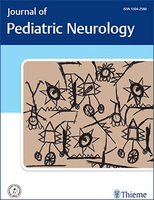
DEVELOPMENTAL NEUROSCIENCE
Scope & Guideline
Fostering Insights in Developmental Neuroscience
Introduction
Aims and Scopes
- Neurodevelopmental Disorders:
The journal explores various neurodevelopmental disorders such as autism, ADHD, and cerebral palsy, investigating their etiology, pathophysiology, and potential therapeutic strategies. - Neonatal and Pediatric Neuroscience:
Research on the impact of early life stressors, hypoxic-ischemic injuries, and prenatal exposures on brain development and long-term neurological outcomes in neonates and children. - Molecular and Cellular Mechanisms:
Studies focusing on the molecular pathways and cellular mechanisms involved in neurodevelopment, including gene expression, epigenetic regulation, and signaling pathways. - Animal Models of Neurodevelopment:
Utilization of various animal models to simulate human neurodevelopmental disorders, providing insights into the biological underpinnings and potential interventions. - Neuroprotective Strategies and Interventions:
Research on therapeutic approaches aimed at protecting the developing brain from injury, including pharmacological treatments, nutritional strategies, and innovative technologies.
Trending and Emerging
- Epigenetic and Environmental Interactions:
An increasing focus on how epigenetic modifications and environmental factors, such as maternal stress and prenatal exposures, influence neurodevelopment and contribute to disorders. - Neuroinflammation and Immune Response:
Emerging research on the role of neuroinflammation and the immune system in neurodevelopmental disorders, highlighting how inflammatory processes can impact brain development and function. - Precision Medicine and Targeted Therapies:
A trend towards personalized approaches in treating neurodevelopmental disorders, utilizing advances in genomics and individualized interventions to optimize therapeutic outcomes. - Advanced Neuroimaging Techniques:
Growing interest in employing sophisticated imaging techniques to study brain structure and function, allowing for more detailed understanding of neurodevelopmental trajectories. - Interdisciplinary Approaches:
An increasing trend in interdisciplinary research that combines insights from neuroscience, psychology, genetics, and public health to address complex neurodevelopmental issues.
Declining or Waning
- Traditional Neuroanatomical Studies:
There has been a notable decrease in studies focused solely on traditional neuroanatomical descriptions and mappings, as the field shifts towards more integrative approaches that combine molecular, genetic, and functional analyses. - Generalized Behavioral Assessments:
Research that employs broad, non-specific behavioral assessments without linking them to underlying biological mechanisms is becoming less common, as the field increasingly emphasizes mechanistic insights. - Single-Factor Explanations for Disorders:
There is a waning interest in studies that attribute neurodevelopmental disorders to single causative factors, as current research recognizes the multifactorial nature of these conditions, integrating genetic, environmental, and epigenetic influences.
Similar Journals

NeuroSci
Fostering Innovation in the World of NeuroscienceNeuroSci is an esteemed open-access journal published by MDPI, dedicated to advancing the field of neuroscience through high-quality research dissemination. Operating under the E-ISSN 2673-4087, this journal aims to foster collaboration and innovation by providing a platform for original research articles, reviews, and theoretical studies that address the complexities of the brain and nervous system. NeuroSci encourages submissions from a wide array of disciplines including cognitive neuroscience, neurobiology, neurophysiology, and neuropsychology, making it an essential resource for researchers, professionals, and students alike. With its commitment to open accessibility, NeuroSci ensures that groundbreaking findings are readily available to the global community, thereby enhancing the impact and exchange of knowledge in neuroscience. The journal is located at ST ALBAN-ANLAGE 66, CH-4052 BASEL, SWITZERLAND, contributing to the reputation of MDPI as a leading publisher in the academic landscape.

RESTORATIVE NEUROLOGY AND NEUROSCIENCE
Nurturing Knowledge: Bridging Research and Clinical Practice in NeuroscienceRESTORATIVE NEUROLOGY AND NEUROSCIENCE, published by IOS PRESS, is a premier journal dedicated to advancing the fields of neurology and neuroscience. Since its inception in 1989, this journal has played a crucial role in disseminating cutting-edge research findings and innovative therapeutic approaches that aim to restore neurological function and improve patient outcomes. With a focus on developmental neuroscience and clinical neurology, the journal holds a 2023 Scopus ranking of #129 out of 400 in clinical neurology, and #15 out of 37 in developmental neuroscience, reflecting its significant influence in these domains. Although it operates on a non-open access model, RESTORATIVE NEUROLOGY AND NEUROSCIENCE offers valuable insights for researchers, healthcare professionals, and students seeking to deepen their understanding of neural restoration mechanisms and therapeutic strategies. Located in Amsterdam, Netherlands, the journal continues to foster scholarly dialogue and innovation, contributing to the global advancement of neuroscience and neurology.

CLINICAL EEG AND NEUROSCIENCE
Unlocking the Mysteries of Neurological DisordersCLINICAL EEG AND NEUROSCIENCE, published by SAGE Publications Inc, stands as a pivotal journal in the fields of neurology and neuroscience, with a focus on the latest research and advancements in clinical electroencephalography and neurophysiology. Since its inception in 1970, the journal has provided a platform for rigorous scholarly work, offering valuable insights into neurological disorders and EEG technology. With its current categorization in the Q2 and Q3 quartiles across various subfields of medicine and neurology, it ranks prominently in the Scopus database, emphasizing its significance in academic discourse. The journal's commitment to disseminating high-quality research is underscored by its open access options, facilitating broader accessibility to its published findings. For researchers, clinicians, and students alike, CLINICAL EEG AND NEUROSCIENCE remains an essential resource for keeping abreast of the evolving landscape of neurological studies.

FOLIA BIOLOGICA
Elevating Biological Research Through Peer ReviewFOLIA BIOLOGICA, published by Charles University Prague, First Faculty of Medicine, is an esteemed academic journal that has been contributing to the fields of Biochemistry, Cell Biology, Developmental Biology, Genetics, Immunology, and Molecular Biology since its inception in 1961. With an ISSN of 0015-5500, this journal serves as a vital platform for researchers and professionals to disseminate their findings and advance knowledge within these disciplines. Despite its current Category Quartiles ranking in the lower tiers (Q3 and Q4), FOLIA BIOLOGICA continues to provide valued insights and foster scholarly dialogue, particularly in its paralleled fields. The journal is headquartered in Prague, Czech Republic, and operates without Open Access options, which emphasizes its focus on curated, peer-reviewed content essential for academicians and students. By bridging theoretical and practical knowledge, FOLIA BIOLOGICA remains committed to enriching the scientific community and serving as a cornerstone for future research innovations.

PEDIATRIC NEUROLOGY
Empowering Healthcare through Cutting-edge Neurological StudiesPediatric Neurology, a prestigious journal published by Elsevier Science Inc, is a leading resource in the field of child neurology and developmental neurosciences. With an impressive impact factor and categorization in the Q1 and Q2 quartiles across several relevant fields, including Pediatrics, Neurology, and Developmental Neuroscience, this journal is essential for researchers and healthcare professionals focused on pediatric neurological disorders. Since its inception in 1985, it has provided a platform for high-quality research, clinical studies, and reviews that drive advancements in diagnosis, treatment, and understanding of neurological conditions in children. Although the journal does not currently offer open access, it maintains a robust reputation in the academic community, bolstered by its prominent ranking in Scopus metrics. By engaging with the latest findings published in Pediatric Neurology, readers will gain vital insights that contribute to improving pediatric healthcare outcomes in neurology and neuroscience.

NEUROSCIENCE LETTERS
Pioneering Research for a Deeper Neural Insight.NEUROSCIENCE LETTERS is a distinguished journal published by ELSEVIER IRELAND LTD, focusing on disseminating impactful research across the field of neuroscience. With its ISSN 0304-3940 and E-ISSN 1872-7972, the journal serves as a vital platform for researchers, professionals, and students aiming to explore the complexities of nervous system function and related disorders. Since its inception in 1975, NEUROSCIENCE LETTERS has contributed significantly to the field, currently positioned in the Q3 category for Miscellaneous Neuroscience, with a respectable Scopus rank of 52/113, placing it in the 54th percentile among its peers. The journal is published in Ireland and offers a comprehensive repository of scientific insights, methodologies, and innovative findings that advance our understanding of neurological phenomena. While not an open-access journal, it remains an essential resource for the latest advances in neuroscience research and the academic community’s collective knowledge.

BMC NEUROSCIENCE
Connecting Researchers to the Heart of Neuroscience DiscoveryBMC NEUROSCIENCE is a prominent open access journal dedicated to the dissemination of high-quality research within the dynamic and rapidly evolving field of neuroscience. Published by BMC, a well-respected leader in open access publishing, this journal facilitates the free exchange of knowledge since its inception in 2000. With the ISSN 1471-2202, BMC NEUROSCIENCE aims to address the diverse interests of the neuroscience community by covering a broad spectrum of topics, ranging from cellular and molecular neuroscience to general neurological studies, thus appealing to researchers, professionals, and students alike. Although it currently holds a Q4 ranking in Cellular and Molecular Neuroscience and a Q3 rank in miscellaneous Neuroscience categories, its commitment to advancing the understanding of brain function and disorders remains steadfast. The journal features a user-friendly Open Access model, ensuring that critical research findings are readily accessible to everyone, fostering collaboration and innovation in the field. As the journal continues to evolve towards its convergence years of 2024, it aspires to enhance its impact and global reach, making it a valuable resource for anyone interested in advancing neuroscience research.

Frontiers in Integrative Neuroscience
Bridging disciplines for a comprehensive view of neuroscience.Frontiers in Integrative Neuroscience, published by FRONTIERS MEDIA SA, is an esteemed open-access journal dedicated to advancing our understanding of the intricate workings of the nervous system. Since its inception in 2007, this journal has become a key resource for researchers and professionals in the field, covering a wide range of topics including cellular and molecular neuroscience, cognitive neuroscience, and sensory systems. With a reputation bolstered by its open-access model, Frontiers in Integrative Neuroscience aims to promote expedient dissemination of high-quality research, ensuring that all findings are readily accessible to the scientific community and beyond. The journal has achieved a commendable recognition, ranking in the upper tiers of its respective categories according to Scopus, with a Q2 ranking in both cognitive neuroscience and sensory systems, and a Q3 ranking in cellular and molecular neuroscience. Based in Switzerland, it continues to be a pivotal platform for innovative research that shapes our understanding of neural dynamics, encouraging collaboration and knowledge exchange among scholars worldwide.

NEUROSCIENCE RESEARCH
Championing High-Quality Neuroscience ResearchNEUROSCIENCE RESEARCH, published by Elsevier Ireland Ltd, is a leading journal in the field of neuroscience, with a notable reputation for disseminating high-quality research that spans a variety of topics within the discipline. With an ISSN of 0168-0102 and an E-ISSN of 1872-8111, this journal serves as a vital platform for both established researchers and emerging voices in the field. Ranking in the Q2 quartile in both Medicine and Neuroscience categories, it has been recognized as a reliable source of innovative findings since its inception in 1984, with continuous publication through 2024. Although it does not currently offer Open Access options, the journal is indexed in Scopus, holding a significant position at Rank #48/113 in General Neuroscience, reflecting its contribution to advancing the understanding of neural mechanisms across various contexts. With its address anchored in Ireland, NEUROSCIENCE RESEARCH plays an essential role in bridging scientific inquiry and practical applications, making it an indispensable resource for researchers, professionals, and students dedicated to the burgeoning field of neuroscience.

Journal of Pediatric Neurology
Bridging gaps in knowledge for better child development.Journal of Pediatric Neurology, published by GEORG THIEME VERLAG KG, stands as a dedicated resource in the field of pediatric neurology, navigating the complex interplay of neurological and developmental disorders affecting children. With its ISSN 1304-2580 and E-ISSN 1875-9041, this journal has been a pivotal platform for advancing research since its inception in 2003, and continues to present critical findings and discussions up to 2024. Although currently categorized in the Q4 quartile for both Neurology (Clinical) and Pediatrics, Perinatology and Child Health within Scopus rankings, the journal's commitment to fostering scholarly dialogue is essential for researchers, clinicians, and students dealing with pediatric patients. Its structured coverage of various neurological disorders, treatment strategies, and innovative therapies contributes to the broader understanding of pediatric neurology, despite the challenges noted in its ranking percentile. By encouraging submissions from diverse disciplines, the journal aims to enhance clinical practice and bridge gaps in knowledge, ensuring a multidisciplinary approach to child health and development.